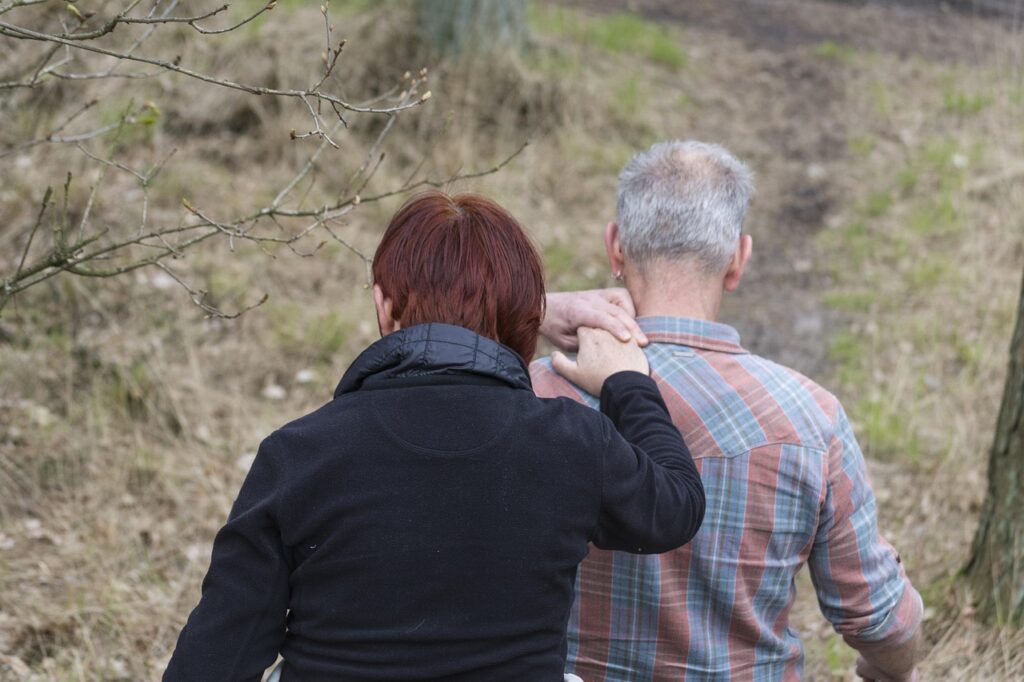
When overwhelm settles over you and starts pulling you into its grasp, it can feel a lot like those old television shows where someone fell into quicksand and their efforts to escape only tended to make them sink faster. For those of you not quite as old as me, and so you get the visual, there’s also the Wreck It Ralph movie where Felix and Calhoun fall into Nesquik Sand and whose struggles cause them to sink further into the shifting Sand. For some of us, that’s what life’s overpowering emotions or circumstances can feel like—like trying to escape from quicksand. And, like quicksand, it can seem like the more we try to regain control, the more out of control we tend to feel. In other words, as we struggle to escape the meltdown quicksand, the deeper we sink into the mire.
When life feels like that for whatever reason (too much socialization, too much sensory input, or not enough downtime) it helps to have someone who gets you enough to provide you what you need. Someone who has been in quicksand and knows how to help you get out. Of course, the someone our teens need in those moments is us. And, interestingly, as we help them, as we hold space for them, they learn the skills to help not only themselves, but others, too. But we’ll get to that in a moment. First, let’s consider this whole quicksand muck and mire as it applies to our teens because I think sometimes we don’t realize how much our teens need our willingness to love them through the same things we had to love them through when they were wee ones.
When our children are young, toddlers and young children, those moments can come seemingly out of the blue or in waves; the world is big, they are small, and their emotions are much too much to control. In other words, they need our help. What no one tells you is those moments, those overwhelming and out-of-control circumstances, can just as often affect our teenagers. Because they are older and more articulate, we can tend to forget their brains are still not fully developed. But they’re not, and won’t be until they hit their early to mid 20s.
Oh, and the teenage years are on par with the baby years as far as how busy their brains are processing all manner of new things in their lives. Where the infant brain is creating neural connections and pathways and making sense of the world, the teenage brain is refining and rewiring those early connections and pathways (for more detailed information about the workings of the teenage brain, you can look up the pruning effect on a teen’s developing brain). In the push to want our teens to be more responsible for themselves, more independent (and in their strong desire to break free from us, their parents), we may overlook just how much they still need our help along the way.

Because we are a neurodivergent family, our approach to the teen years has not had to shift all that much. We have always focused on co-regulation and ways to support a kid having a challenging moment or emotional dysregulation. Truly I see no other options when our kids, whether teens or toddlers, are having a difficult day, a fantastic day, a messy day, or an anywhere-in-between day, except to love them through those moments. It’s almost always about loving and listening and holding space for all those big teen feelings here.
One of the things I have learned as a parent is that we need to hone our skills and responses to our kids through the years. While circumstances change and the hurts are different, teens still need us to love them through the messy days and the big emotions and the confusing times of teen life—dating, friendships, hormones, new experiences. Like many things, parenting is not a one-size-fits-all sort of adventure. We have to grow and develop our abilities alongside our teenagers. And, if we’re lucky, we’ll have teenagers who can help us do that. I certainly am grateful for these two remarkable young women who remind me often how to tap into those places of growth.
And, as I mentioned earlier, as we’ve walked alongside them, they, too, are learning those co-regulating skills and ways to hold space for others, including me. When they were toddlers and young children, they were only able to mostly take what they needed. But as we’ve all grown together, they have become young women who are also able to give, to provide love and comfort and a listening ear. They are able to speak my words back to me and to remind me of what I need when I stumble into the Nesquik Sand; they remind me not to struggle, but, like Felix and Calhoun discovered, to find the humor and the help along the way in order to reach the laffy taffy vines that can help me get out of the mire. These two incredible young women are sometimes those vines for me.
